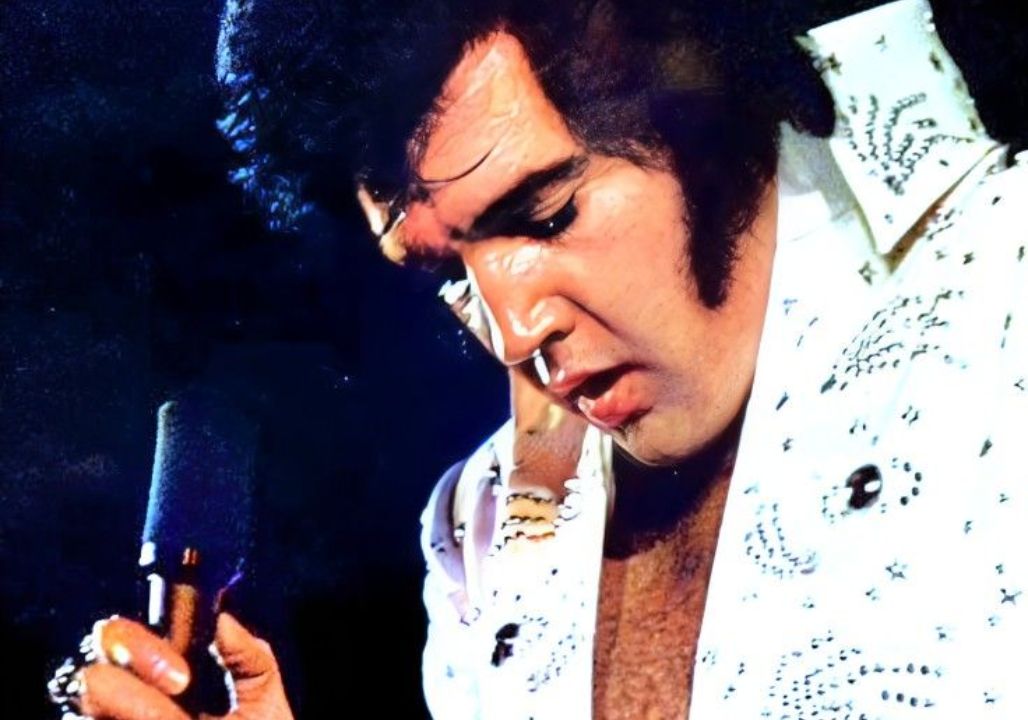
On August 16, 1977, the world was jolted by the devastating news that Elvis Presley, the undisputed King of Rock and Roll, had died at the astonishingly young age of just 42. Found unconscious on the bathroom floor of his iconic Memphis mansion, Graceland, this shocking moment sent ripples of disbelief through legions of fans worldwide. His death was officially announced at 3 p.m., and rumors and speculation erupted almost immediately. How could a man who had not only defined a musical era but had also sold nearly a billion records disappear so suddenly?
A deeper and grimmer story emerged after thorough forensic investigations revealed the stark reality of Elvis’s final 24 hours and the long-hidden decline of his health behind the dazzling spotlight. Despite his public image of vitality and charisma, Elvis had been battling severe obesity, dangerously high cholesterol levels, and an enlarged heart that foreshadowed imminent tragedy. Autopsy reports were chilling—his organs, including his liver and colon, were nearly twice the normal size, with his colon notably blocked, and his heart bore unmistakable signs of long-term damage. This revelation painted a picture of a man whose body was silently wearing down, living on borrowed time.
Yet the physical ailments told only half the story. Toxicology tests uncovered a cocktail of nine different prescription drugs coursing through his system, ranging from sedatives and painkillers to medications targeting anxiety and depression. Elvis’s struggle with insomnia led him into a perilous reliance on sleeping pills, which he attempted to balance by taking stimulants. This volatile cycle of “downers and uppers” inflicted a devastating toll on his body, blurring the line between necessary medical treatment and dangerous dependency.
In the final night of his life, Elvis clung to his unusual nocturnal habits. After a late-night dental appointment, he returned to Graceland and engaged in a game of racquetball with friends in the early morning hours. He even graced the piano with his voice for a haunting last performance of classics like Blue Eyes Crying in the Rain and Unchained Melody. Yet by dawn, he became restless and unable to find rest despite repeated doses of medication. Plagued by toothache, eye pain, and severe constipation, Elvis retreated alone to the bathroom some time around 9 a.m.—where his heart finally gave out, ending an era.
Medical experts now point to a fatal cardiac event triggered by years of deteriorating health compounded by his prescription drug use and the extreme strain of chronic constipation. The act of straining exerted enormous pressure on his already fragile heart, causing a lethal arrhythmia. In truth, Elvis had been teetering on the brink for years, a fact invisible behind his glowing public persona.
Even with these medical facts laid bare, countless myths and conspiracies surrounding his death refuse to fade. Some insist on stories of secret overdoses; others believe he vanished intentionally to escape the pressures of stardom. What remains undeniably clear is the colossal legacy Elvis Presley left behind. He revolutionized popular music, fusing gospel, blues, and country into a fresh, electrifying sound that reshaped culture worldwide. His magnetic charisma, unmatched generosity, and unmistakable voice cemented his status—not just as a star, but as an eternal American musical icon.
Though he departed the stage far too soon, Elvis’s presence still reverberates across generations. His ongoing fans keep his music alive, and his life story endures as both a sobering cautionary tale about the hidden costs of fame and an unforgettable tribute to the greatest entertainer the world has ever known.
